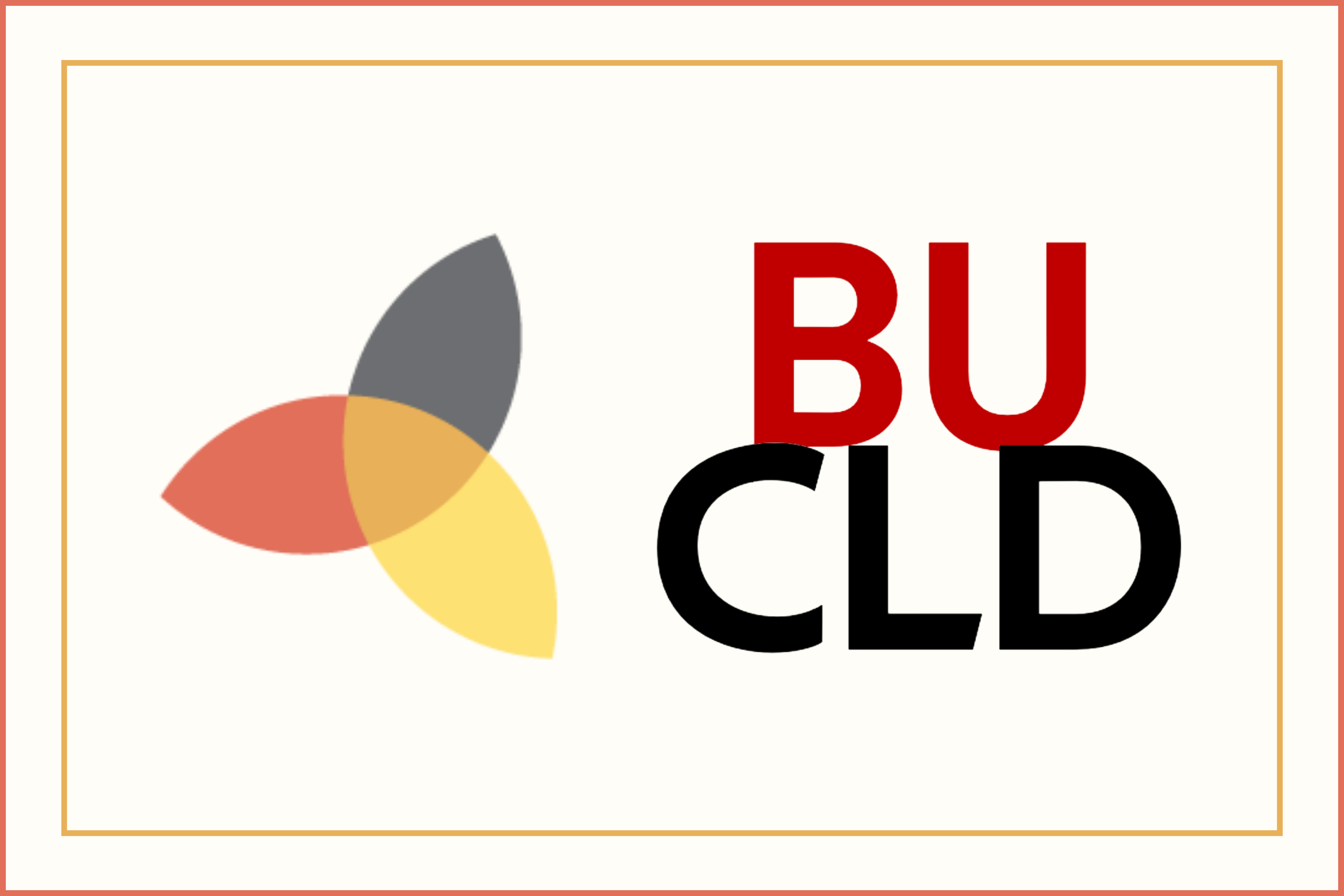Language Scientists Showcase Scholarship at BUCLD
November 09, 2023
Maryland Language Science Center | Linguistics

University of Maryland students, postdoctoral researchers, and faculty members recently participated in the 48th Annual Boston University Conference on Language Development (BUCLD 48) . Seven students, two postdoctoral researchers, and five faculty members from the Department of Hearing and Speech Sciences and the Department of Linguistics attended the conference or co-authored presentations. Maryland presentations at the conference reflect diverse perspectives on language science in topics such as grammar acquisition, syntax, cochlear implants, the Mayan language, prosody, and the comprehension-production gap. Notably, the talk Children do not overuse “the” in natural production by Yuanfan Ying , Valentine Hacquard , Alexander Williams , and Jeffrey Lidz (LING) evaluated children’s use of the definite article “the,” asserting that despite prior claims, children do not overuse the definite article in a context where an indefinite article is more appropriate in natural speech. The contributions of auditory experience and spectral degradation to delays in spoken word recognition by children with cochlear implants by Christina Blomquist , Rochelle Newman , and Jan Edwards (HESP) engaged audiences when exploring the cause of delays in understanding spoken words by children with cochlear implants and assessed how one's hearing experience influences this. Cassandra Caragine and Lydia Quevedo (LING) presented a poster on the Mayan language titled, Acquisition differences in Mayan languages, a prosodic account. The presentation asserted that delays in understanding verb agreements in K’iche compared to other Mayan languages can be attributed to how sound influences one's understanding of words. Mayan language and populations are understudied, making studies in language development substantial and rare. Additionally, Which words do children understand but not yet say? Syntactic complexity and the comprehension-production gap by Jonet Artis (HESP) and Sudha Arunachalam (Texas Tech University) presented a study evaluating the role of syntactic complexity in the words children produce. Artis and Arunchalam argued that while they observed that syntactic frame did not impact comprehension, children were more likely to produce already comprehended verbs in intransitive frames rather than ditransitive. These highlighted presentations are a small selection of the impressive contributions of language science students, postdoctoral researchers, and faculty. Below is a complete list of all contributions from Maryland language scientists at BUCLD 48: Department of Hearing and Speech Sciences: The contributions of auditory experience and spectral degradation to delays in spoken word recognition by children with cochlear implants. Christina Blomquist , Rochelle Newman , and Jan Edwards Phonetic properties of code-switching in infant-directed and adult-directed speech. Erika Exton and Rochelle Newman Which words do children understand but not yet say? Syntactic complexity and the comprehension-production gap. Jonet Artis and Sudha Arunachalam Using Naturalistic Language Samples to Understand the Link between Language Input and Speech-Language Development in Preschoolers with Cochlear Implants. Rochelle Newman , Jan Edwards , Benjamin Munson, Rachel Romeo , Jessica Kosie, and Meg Cychosz Department of Linguistics: Preschoolers’ real-time eye movements reveal sensitivity to connective meanings during word learning. Elizabeth Swanson , Hugh Rabagliati, and Alex de Carvalho Children do not overuse “the” in natural production. Yuanfan Ying , Valentine Hacquard , Alexander Williams and Jeffrey Lidz The role of Anti-Agreement in the comprehension of relative clauses and wh-questions in Tashlhiyt Berber. Imane Bou-Saboun and Jeffrey Lidz Acquisition differences in Mayan languages: a prosodic account. Cassandra Caragine and Lydia Quevedo Visit the BUCLD 48 website to learn more about this year's presentations.



